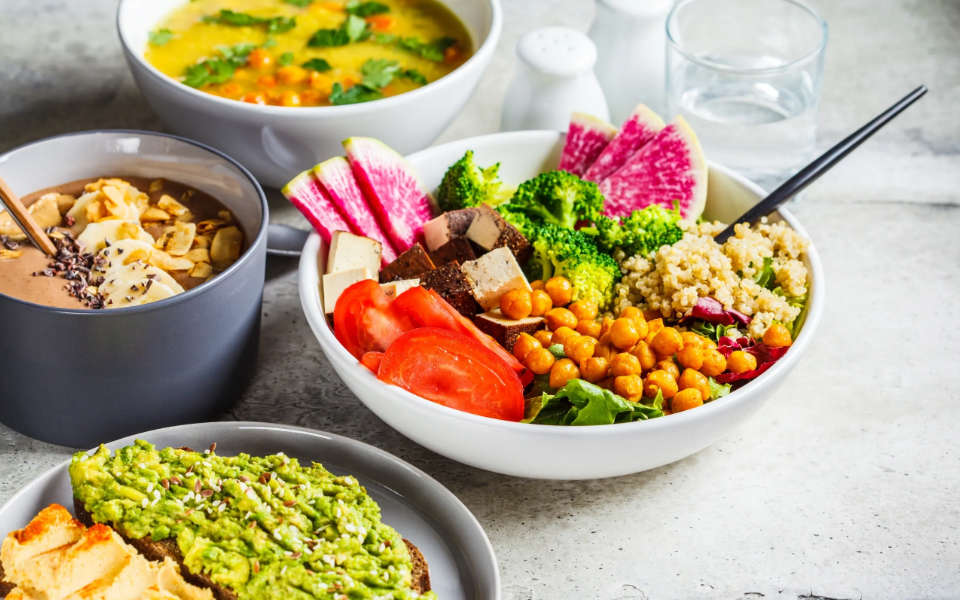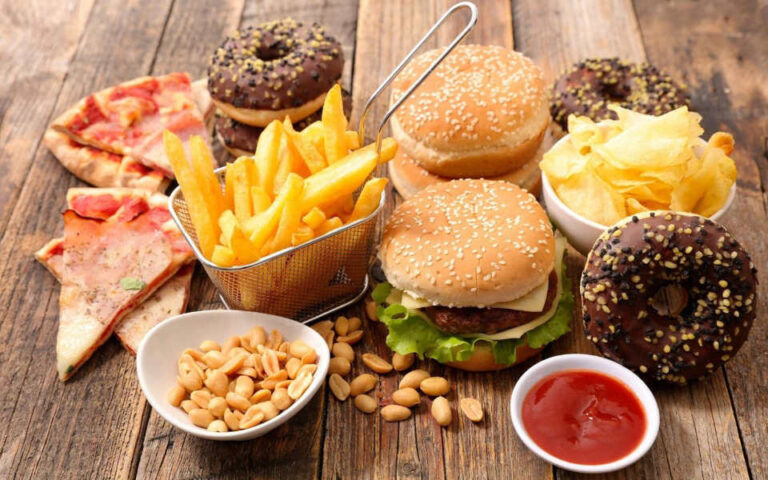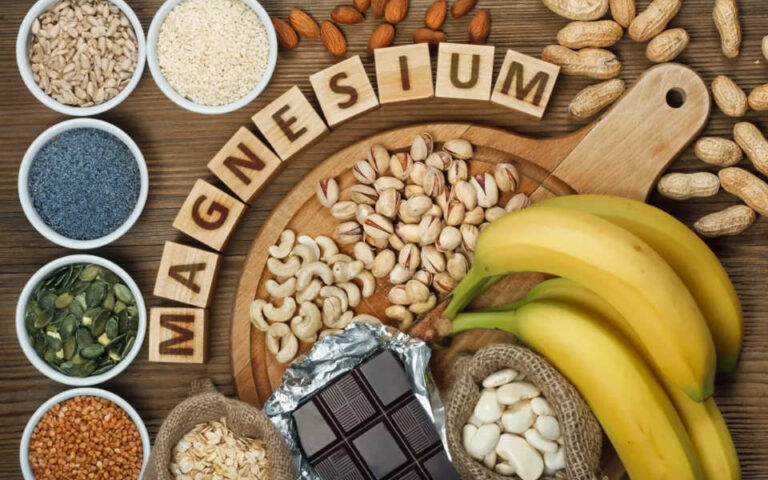Plant-based diets have been around for a long time. Despite this, it was only until the 19th century where the term “vegetarian” was used. However, during that time a significant portion of vegetarians have been following a stricter version of the vegetarian diet excluding dairy products, honey, eggs, and fish from their diet. It wasn’t until 1944 that a small group of vegetarians belonging to the Vegetarian Society formed their own group called Vegan Society. This small group is still members of the Vegetarian Society. However, they branched off so that their diet and way of living would be formally recognized.
Veganism is not limited to a strict plant-based diet. In a sense, vegan diet is synonymous to a plant-based diet but veganism is more than that. Veganism is a lifestyle. For a person to be considered a vegan, they must avoid products and activities that, in any way or form, exploit animals. For example products like silk, wool, or leather, and activities like dog or horse racing.
So What Does Vegan Mean?

The vegan society provides a comprehensive definition of veganism. Verbatim this is their definition:
“Veganism is a philosophy and way of living which seeks to exclude-as far as is possible and practicable-all forms of exploitation of, and cruelty to, animals for food, clothing or any other purpose; and by extension, promotes the development and use of animal-free alternatives for the benefit of animals, humans and the environment. In dietary terms it denotes the practice of dispensing with all products derived wholly or partly from animals.”
What is the Difference Between a Vegetarian and a Vegan?
As mentioned earlier, veganism is a lifestyle that excludes all forms of animal exploitation from their diets, the products they use, and even the activities they engage in. Vegetarians, on the other hand, do not follow this lifestyle. Vegetarians are individuals who don’t eat meat but still eat other animal products like eggs, dairy, and honey. In other words, vegetarians follow a diet that is mostly plant-based but with the inclusion of a few animal products. Although some vegetarians may avoid animal exploitation in the form of racing dogs, or leather handbags. This is more of a personal preference rather than the influence of vegetarianism.
Following a vegetarian diet doesn’t mean that the person isn’t concerned about animal exploitation. In fact, some vegetarians exclude all forms of meat, including fish. These types of vegetarians are called ‘Pescatarians’, for they exclude all forms of meat including fish and seafood in their diet. Most of these individuals follow this type of diet because they are concerned about animal exploitation. However, some of them may not realize that milk, egg, and honey production still involves animal exploitation.
Do Vegans Eat Eggs and Cheese?
While vegetarians may eat eggs and cheese depending on the specific vegetarian diet. Vegans have strictly no eggs and cheese. For the production of eggs and dairy products exploits animals.
Common Reasons Why People Go Vegan
For a restrictive diet such as veganism, there must be some strong motivational force that pushes people to make the hard choice. The following are some common reasons as to why people switch to veganism or adopt a vegan diet.
1. Ethics
The main reason as to why people adopt the vegan lifestyle is due to their ethical beliefs. Vegans follow a philosophy where they strongly believe that all creatures have the right to life and freedom. This translates to their choice of foods, activities, and products. With regards to food, their reverence to the lives of animals empowers them to avoid eating any animal-based food or animal-derived food such as meat, milk, eggs, and honey. When it comes to products, vegans avoid products that in some form or way involve animal exploitation. For example, vegans may avoid leather bags, for leather came from animal skins. They may also avoid pharmaceuticals if the pharmaceutical was developed with animal testing involved.
2. Health
Another strong motivator is health. Some people choose to follow the vegan diet because of its potential health benefits. People who have this mentality are often not true vegans but are only following the vegan diet also known as plant-based diet. Which means they may still use products or practice activities that involve animal exploitation.
As we would discuss in further detail later on, plant-based diets are capable of reducing your risk of heart disease, type 2 diabetes, cancer, and premature death. Lowering your intake of animal products, an effect of the vegan diet, could lower your risk of Alzheimer’s disease. Livestock are usually fed with a lot of antibiotics and hormones to grow fast and be resistant to disease. These antibiotics and hormones may persist in their meat. Following a diet that excludes animal products means you don’t get to ingest these antibiotics and hormones. And of course, plant-based diets make weight loss easier.
3. Environment
Raising livestocks for the purpose of producing animal products is an activity that has a huge environmental impact. Producing animal-based products uses up a lot of resources and causes higher greenhouse emissions compared to plant-based products. The cattle raising industry alone contributes 65% of nitrous oxide emissions, 35 to 40% of methane emissions, and 9% of carbon dioxide emissions. On top of this, beef production is a water-intensive process that consumes 550 to 5,200 gallons or 1,700–19,550 liters just to produce 1 pound or half a kilogram of beef. This water demand is 43 times more than the water demand for cereal grain production. Animal agriculture also contributes to deforestation as forested areas are converted to cropland or pasture to feed the livestock. In some sense, you could say that supporting animal agriculture by purchasing animal-based products means that you are indirectly contributing to the release of greenhouse gases. With that said, some individuals believe in this firmly and would choose a vegan lifestyle to lower their environmental impact.
What Do Vegans Eat

We’ve already established earlier that true vegans place animal welfare over their dietary choice, which is why they avoid animal-derived food products.
So what do vegans eat?
1. Foods That Vegans Eat
Vegetables aren’t the only thing that vegans can eat. There are also soy products such as tofu and soy milk, for these aren’t derived from animals or caused any animal to be exploited.
Since veganism has been around for a long time, a lot of vegans have made vegan versions of most dishes. Nowadays, there are vegan bean burritos, meatless vegan burgers, vegan tomato pizzas, smoothies, nachos with salsa and guacamole, hummus wraps, sandwiches, and pasta dishes.
Since vegans don’t eat meat, for dishes that do require it substitutes such as beans, lentils, tofu, seitan, tempeh, nuts, and seeds are used.
Vegans don’t eat dairy products because, although it doesn’t involve the killing of an animal, it still involves exploitation of the animal that is to be milked. Whenever a dish calls for dairy products, vegans would utilize plant milks. For scrambled eggs, vegans can use tofu for they have the same texture. Maybe add some soy sauce to add some flavor. Raw eggs may be replaced with flax or chia seeds. When flax and chia seeds are mixed with the right amount of water they thicken and can be used as a substitute for raw eggs. To produce honey, bees are kept in a farm and in essence are also exploited. For this reason, vegans cannot use honey, instead they use plant-based sweeteners like molasses or maple syrup.
2. Foods That Vegans Avoid
To reiterate, vegans avoid foods of animal origin. This includes meat, chicken, fish, shellfish, eggs, honey and dary. There are also certain ingredients that vegans avoid because they are derived from animals. These ingredients are albumin, casein, carmine, gelatin, pepsin, shellac, isinglass, and whey. Some foods that may contain the aforementioned ingredients include beers, wines, marshmallows, breakfast cereals, gummy candies, and chewing gum. With so many ingredients being added to food products nowadays, it is difficult for a vegan to know whether something is vegan or not. Thus, food manufacturers began to add the Certified Vegan Logo to indicate that their product doesn’t include any prohibited ingredient.
Types of Veganism
1. Dietary Vegans
They are almost the same as plant-based eaters, but plant-based eaters may eat plant-based food with ingredients like albumin, casein, carmine, gelatin, pepsin, shellac, isinglass, and whey which are animal-derived. Dietary vegans eat the same way as true vegans do. However, they don’t fully commit to the vegan lifestyle. They may still use other products such as cosmetics, clothing, etc. that are derived from animals. Aside from that, they may still participate in activities that exploit animals such as horse-racing, dog-racing, and hunting.
2. Whole-food Vegans
Whole-food vegans are like true vegans. However, unlike the other vegans their diet is rich in whole foods such as fresh fruits, vegetables, whole grains, legumes, nuts, and seeds. Their consumption of processed vegan foods is minimal to none.
3. Junk-food Vegans
With the rise in the popularity of the vegan diet several food manufacturers have made processed foods that are vegan. However, despite being vegan, these foods aren’t always healthy. Nowadays, there are processed vegan meat-substitutes, fast food fries, frozen vegan dinners, and vegan desserts including Oreo cooking and non-dairy ice cream. Eating them occasionally might be okay but when your diet is mostly processed food you would fall under the junk-food vegan category and that is not healthy.
4. Raw-food Vegans
There are groups of vegans that only eat raw foods or foods that are cooked at temperatures below 48 degrees Celsius or 188 degrees Fahrenheit.
5. Fruitarians
These are vegans that rely mostly on fruits. They may still eat other plant-based foods but only occasionally.
Vegan Products – Veganism Beyond Diet

Veganism is a lifestyle that extends beyond dietary choices. A vegan’s resolve not to exploit or harm animals affects their choice of clothing and activities as well. For example, they don’t do hunting or fishing, nor bet in horse-racing or dog-racing. As for products, like cosmetic products and toiletries, they should not have animal derived ingredients like albumin, casein, carmine, gelatin, pepsin, shellac, isinglass, and whey. Furthermore, the products should not have gone through animal testing. It’s not so difficult to remain faithful to the vegan lifestyle these days as products that are compliant to the vegan requirements are given a vegan mark.
Veganism Pros and Cons
The World Health Organization (WHO) defines a healthy diet is one that has the following features:
- Provides about 400 grams of vegetables and fruits everyday with the exclusion of starchy vegetables.
- Less than 50 grams of added or free sugars.
- A combination of different foods:
- Staples like cereals (wheat, barley, rye, maize or rice) or starchy tubers or roots (potato, yam, taro or cassava).
- Legumes (lentils and beans).
- Fruit and vegetables.
- Foods from animal sources (meat, fish, eggs and milk)
Furthermore, the recommended daily portions for fats, proteins, and carbohydrates are as follows:
- 20% to 30% of calories from healthy fats, about 44 to 77 grams for a daily caloric need of 2000 calories.
- 10% to 35% of calories from protein, about 50 to 175 grams for a daily caloric need of 2000 calories.
- 45% to 65% of calories from carbohydrates, about 225 to 325 grams for a daily caloric need of 2000 calories.
Thus, we could say that the most ideal diet is one that has animal-based and animal-derived ingredients. Veganism, being a diet that omits certain food groups, is bound to encounter challenges with regards to nutrition. However, these challenges aren’t impossible to overcome. So here are the pros and cons of Veganism:
Veganism Benefits
Due to the nature of the vegan diet, vegans tend to have better heart health and are at a lower risk of acquiring certain diseases. Since they omit meat products, they tend to have better cholesterol levels which translate to better blood pressure. They are also resistant to diabetes and certain types of cancers. Probably the most appealing thing about the vegan diet is that it helps you lose excess fats. On top of that, you would have a healthy glow.
a) Vegan Weight Loss
Several people are turning to the vegan diet for weight loss. Several studies have shown that they may be right to do so. Observational studies have shown that vegans tend to have better body mass indexes than non-vegans. However, this is not enough. There needs to be evidence linking their diet and weight loss. Randomized controlled studies, a reliable type of scientific research, have been conducted to investigate the effects of the vegan diet on a person’s body mass index. A lot of them demonstrated that a vegan diet can improve a person’s body mass index. In fact, in one of the studies a participant lost up to 4.2 kilograms or 9.3 lbs in 18 weeks.
Weight loss as a result of following the vegan diet was also compared to weight loss as a result of following calorie-restricted diets. One study showed that those who followed the vegan diet lost more weight compared to those who followed the calorie-restricted diets. Moreover, a recent small scale study involving 16 participants revealed that those who followed a vegan diet lost more weight even though they weren’t able to follow their diet perfectly.
b) Vegan Diets are Rich in Certain Vitamins and Minerals
Since vegan diets rely mostly on fruits and vegetables, vegans are bound to consume a lot of vitamins and minerals that are present in most fruits and vegetables. Research seems to back up the idea that vegans tend to acquire a lot of vitamins and minerals. One study showed that the standard vegan diet offers a lot of potassium, magnesium, fibre, antioxidants, folate, and vitamins A, C, and E. Despite this, there are certain things that a vegan diet may lack when not planned correctly. The diet may possess insufficient amounts of essential fatty acids, vitamin B12, iron, calcium, iodine, and zinc. This will be discussed in greater detail later in the article.
c) Vegan Diets are Cancer Protective
Research shows that eating a lot of fruits and vegetables may boost your immunity against certain kinds of cancers. For instance a meta-analysis showed that legume consumption can reduce colorectal cancer risk by up to 18%. A different systematic review with meta-analysis concluded that the mere act of consuming at least seven portions of fresh fruits and vegetables per day can lower cancer mortality by up to 15%. These studies may explain the results of a recent review. In this review, the researchers concluded that vegans are less likely to die from cancer.
Another thing that can be observed from vegan diets is the reliance of soy products for protein and flavouring. According to a study that was published in Cancer Science Volume 101 Issue 2, soy products can lower the risk of breast cancer. So we could say that vegans are protected from breast cancer due to the nature of their diet.
Besides the increase of vegetable and fruit intake, avoiding animal products has been correlated to positive health effects that may lead to cancer risk reduction in some studies. Furthermore, it is theorized that the absence of smoking, cooking in high temperatures, and excessive processing in vegan diets may have contributed to this cancer risk reduction.
d) Vegan Diets Improves Blood Sugar Control and Kidney Function
Improved insulin sensitivity leading to a 50% to 78% reduction in type 2 diabetes risk was observed in vegan participants in a systematic review with meta-analysis. Some studies even claimed that the vegan diet is better at glycemic control than the diets recommended by reputable agencies such as American Diabetes Association (ADA), American Heart Association (AHA) and National Cholesterol Education Program (NCEP).
Although the connection between meat consumption and kidney function is unclear. One study managed to find a correlation between reductions in meat consumption and reduction in the risk of kidney diseases.
Cons of the Vegan Diet and How to Handle Them
The restrictive nature of the vegan diet may lead to severe inadequacies in certain nutrients, vitamins, and minerals. However, if the vegan diet is planned properly. The inadequacies can be addressed properly and supplemented.
What Do You Miss Out When You Don’t Plan Your Vegan Diet Properly?
Several studies have shown that vegans are at a higher risk of having inadequate intake of vitamins, such as vitamin B12, vitamin D, important fatty acids like Omega-3, and minerals like iodine, iron, calcium, and zinc. The possibility of missing out on certain vitamins and minerals are troubling for pregnant, breastfeeding women, newborns, infants, and toddlers. These groups of people have specialized or increased nutritional requirements.
As such fortified foods that are certified to be vegan should be included to your diet when there are nutritional inadequacies that cannot be supplemented by food alone. There are also vegan supplements and vegan vitamins that are available in vegan stores. They could also help supplement whatever is lacking in your diet.
There are strategies to improve vitamin and mineral absorption from certain vegan foods. For example, iron and zinc absorption from grains can be enhanced by fermenting, sprouting, or cooking the grains. Consuming vitamin C may also improve iron absorption.
For iodine, a study from the Journal of Food and Drug Analysis volume 22 issue 2 recommends consumption of seaweed or iodized salt.
The lack of omega-3 in most vegan foods can be supplemented by foods that contain a lot of alpha-linolenic acid like chia, hemp, flaxseed, walnuts, and soybeans. However, researchers of the study that suggested this alternative was unsure how much of the alpha-linolenic acid would get converted to omega-3. Thus they recommend a high intake of the aforementioned foods.
Final Thoughts
Veganism is more than a dietary choice, it is a lifestyle that is devoted to animal welfare. A person who follows this way of life must not in any form or way involve themselves in the killing and exploitation of animals. Their plant-based diet is a result of this commitment. They are very strict about the avoidance of animal-based and animal-derived products that they would avoid meat and even foods that have albumin and more.
There are several reasons as to why a person would follow a vegan diet. The most common reasons include ethics, health, and environmental consciousness.
Whatever a person’s reason for following a vegan diet might be, the fact that this diet omits certain food groups is a double edged sword. In other words, a vegan diet offers health benefits but may place a person at risk for certain deficiencies. However, the deficiencies in a vegan diet are not impossible to manage.


